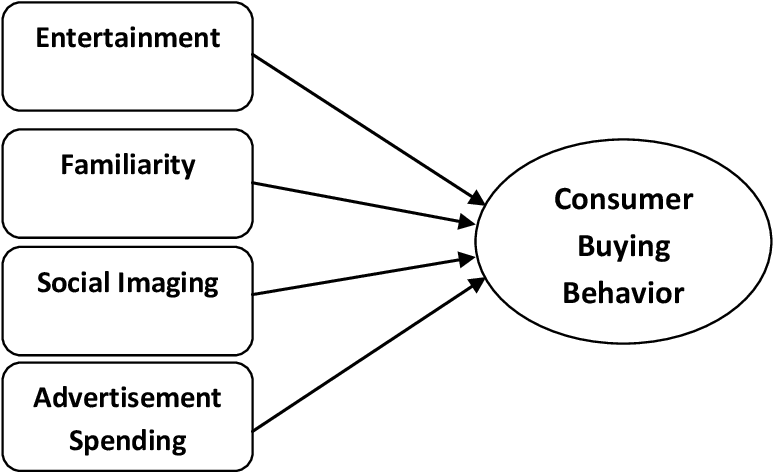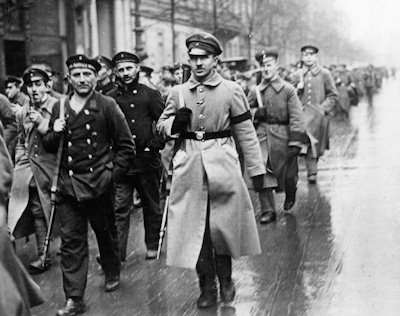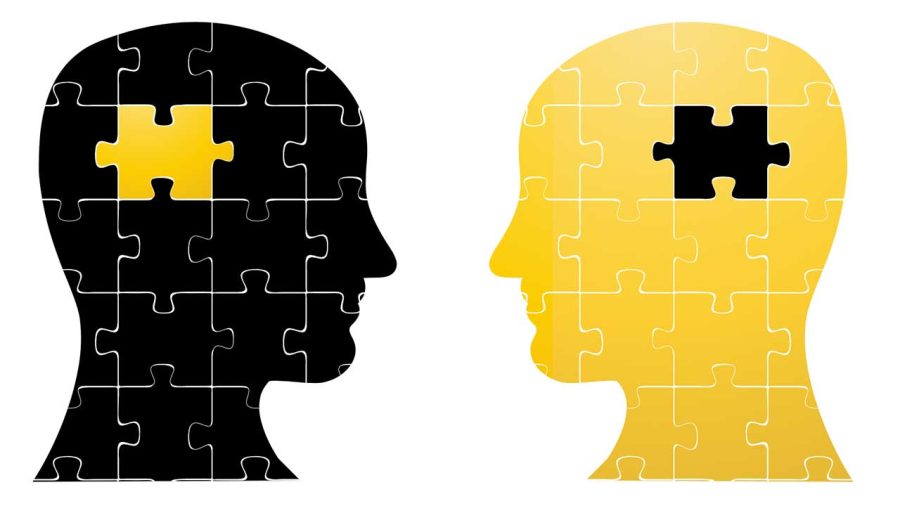How advertising connect to Culture Industry?
Nowadays, advertising permeates every aspect of our lives, holding us hostage in an invisible way. Why the advertisement can influence people’s thinking or even change their minds? The History of Culture Industry shows that in the last century, sociologists had brainstormed about how the culture industry had the effect to the human mind.

History of Culture Industry – The Frankfurt School
By October 1918, Germany was defeated in the First World War. After this, German people not only had to contend with the demoralizing feeling, but also faced the economic problems about paying reparations to the countries who had been defeated by.

Days before the end of the First World War, a sailor’s revolt led to uprisings in cities across the country. Ultimately, however, the communist faction of the revolution led by Rose Luxembury and Karl Liebknecht were outmanoeuvred by the less radical social Democratic Party. After the dust had settled, Germany remained a fundamentally capitalist nation. In May 1923, Felix Weil, the son of a wealthy grain merchant with a keen interest in Marxism organized the first Marxist workweek. One of the key goals of the week was to consider ‘why it was’ the Germany revolution had not yielded great economic reform.

The initial plan was for this to be the first in a number of similar conferences for left-wing German intellectuals. Those gather, however, felt that something more permanent was needed. Felix Weil convinced his wealthy father to provide an endowment to establish and maintain a permanent institute for Marxist inform study. On the 22nd of June 1924, then the institute for social research opened its door in Frankfurt and the institute’s first director, Karl Gruenburg, an economic and social historian.

Main idea of The Frankfurt School
The Frankfurt School is one of the major schools of 20th-century Western Marxism and one of the theoretical origins of the European Critical School. It advocates the study and critique of modern capitalism from a philosophical and sociological point of view, with its main ideas focusing on the critique of the cultural industry under the commercial system of capitalist society and dissecting and criticizing the monopoly and ‘hegemonic’ nature of the Western communication media.

The Frankfurt School had two dimensions of affirmation and denial about the operation of mass culture, the negative dimension being represented by Adorno’s view that mass culture was in fact imposed on the masses by the ruling class through the culture industry in order to achieve the goal of taming and consciousness control. The other dimension is the affirmative dimension represented by Benjamin’s viewpoint, which focuses on the idea that the masses are revolutionary subjects who need to be armed with mass culture, and that the cultivation of mass consciousness and critical thinking can be achieved through art forms such as film and music as a result of the overthrow of capitalism (Meenakshi Gigi Durham, et, 2009).
Does advertising influence people’s minds and make consumers puppets of capitalism or not?

For consumers, it’s hard to resist the urge to learn more when they see beautifully advertised products or their favorite celebrities using certain products. When they are attracted by this information, half of the purpose of the advertisement is achieved. Most people’s need for consumption originates from “Need” and “want” are the two starting points for people’s consumption needs, and the purpose of advertising is to turn people’s thoughts from “want” to “need”. For example, when I see an advertisement featuring organic and pure plant-based laundry detergent, I am often attracted by the beautiful and natural scent of the images, and the process of seeing many plants being extracted into the laundry detergent makes me feel that my health is protected. So even if I still have an unused vat of regular supermarket laundry detergent at home, I search the brand’s website and order the bottle of product, which can cost me several times the price of my own laundry detergent, and tell myself that I need it because I want to keep my personal clothes healthier and safer. Thus, advertising is a means of promoting customer purchases, but it is debatable whether it has become one of capitalism’s means of controlling the hearts and minds of the people, as the dominant view of the Frankfurt School of the last century argues. Advertising promotes consumers’ desire to buy, but it also, to a certain extent, brings good goods to consumers in order to produce convenience or improve the quality of life, which is what contemporary consumers are looking for (Gabriel, Yiannis, and Tim Lang, 2020).
References:
Featured image: https://brantinstore.com/what-advertising-does-to-your-brain/
Gabriel, Yiannis, and Tim Lang. The Unmanageable Consumer. Third edition., SAGE Publications Ltd, 2020.
Haider, T., & Shakib, S. (2017). A Study On The Influences of Advertisement On Consumer Buying Behavior.
Meenakshi Gigi Durham, Douglas M. Kellner. Media and Cultural Studies: Keyworks. 2nd ed., Wiley, 2009.


This article explores the relationship between advertising and the culture industry, particularly from the perspective of the Frankfurt School. One of the interesting points in the article is about how advertising influences people’s consumer decisions. For example, the advert for natural washing powder is mentioned, which entices consumers to buy a high-priced product through beautiful images and messages emphasising health. This shows that advertising does have the ability to change people’s thoughts and consumption behaviour. I think this article provides an in-depth analysis of the role of advertising in the culture industry. It shows how advertising plays an important role in modern society, both in terms of manipulation and the positive side of providing consumers with choice and convenience.